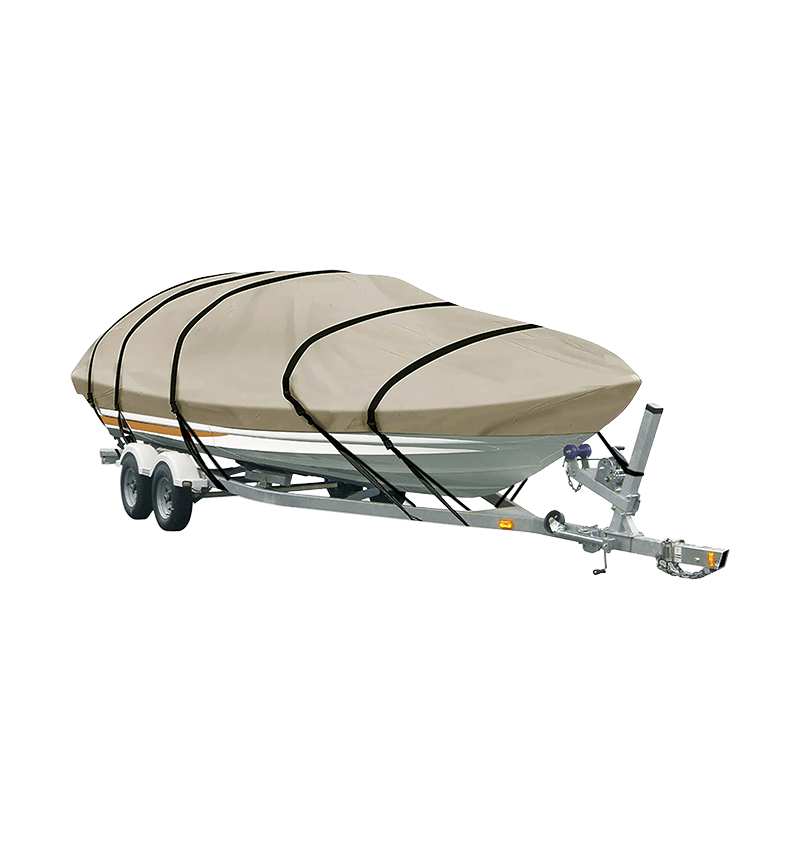Protecting your vehicle—whether it’s a car, truck, or boat—from harsh weather conditions is essential for maintaining its appearance and longevity. A high-quality weatherproof car cover or durable boat cover can shield your investment from rain, UV rays, dust, and debris. However, with so many options available, selecting the right one can be challenging.

1. Understand the Importance of Waterproof Protection
Both boat cover manufacturers and weatherproof car cover producers emphasize the importance of waterproofing. A truly effective cover should not only repel water but also allow moisture to escape to prevent mold and mildew buildup. For boat owners, a waterproof cover is critical to avoid water pooling, which can damage decks and interiors. Similarly, a weatherproof car cover must keep rain and snow from seeping through while allowing the vehicle to breathe.
2. Choose the Right Material
The material is the more crucial factor in determining a cover’s effectiveness. Here are common options used by boat cover manufacturers and weatherproof car cover suppliers:
Polyester with PU Coating – Lightweight, durable, and water-resistant, ideal for cars and smaller boats.
Marine-Grade Polyester – Used by boat cover manufacturers for advanced UV and water resistance.
Multi-Layer Fabric – Some weatherproof car covers combine waterproof outer layers with soft inner linings to prevent scratches.
Breathable Fabrics – Prevents condensation, which is crucial for long-term storage.
Always check the denier (fabric thickness) and coating type to ensure long-lasting protection.
3. Ensure a Proper Fit
A well-fitted cover provides up to protection. Boat cover manufacturers often offer custom-fit options tailored to specific boat models, ensuring a snug fit that won’t flap in the wind. Similarly, a weatherproof car cover should match your vehicle’s dimensions, whether it’s a compact car, SUV, or truck.
Universal Fit – Adjustable but may not provide full coverage.
Semi-Custom Fit – Designed for specific vehicle types (e.g., sedans, trucks).
Custom Fit – Precision-cut for exact models, offering good protection.
If you own a boat, consult boat cover manufacturers for tailored solutions that account for unique shapes and accessories like antennas or outboard motors.
4. Look for Additional Protective Features
Beyond basic waterproofing, advanced covers offer extra safeguards:
UV Resistance – Prevents sun damage and fading.
Reinforced Grommets & Straps – Keeps covers secure in windy conditions (especially important for boats).
Soft Inner Lining – Protects paint and finishes from scratches.
Mold & Mildew Resistance – Essential for humid climates.
Many weatherproof car covers now include reflective strips for visibility, while boat cover manufacturers often integrate ventilation panels to reduce moisture buildup.
5. Consider Storage and Portability
If you frequently remove and reapply your cover, ease of use matters. Lightweight weatherproof car covers with storage bags are convenient for daily use. For boats, heavy-duty covers may require additional support, but should still be manageable for one person to install. Some boat cover manufacturers design covers with zippered access panels for easy boarding without full removal.
6. Compare Durability and Warranty
A high-quality weatherproof car cover or boat cover should last years, not just seasons. Reputable boat cover manufacturers and automotive cover suppliers often provide warranties, indicating confidence in their products. Look for:
Stitching Quality – Double-stitched seams prevent tearing.
Reinforced Stress Points – Areas like mirror pockets or tie-down points should be durable.
Long-Term Warranty – A sign of reliable craftsmanship.
By following these guidelines, you can confidently select a cover that meets your needs, ensuring your car or boat stays protected in any weather.




 English
English 中文简体
中文简体 Español
Español













